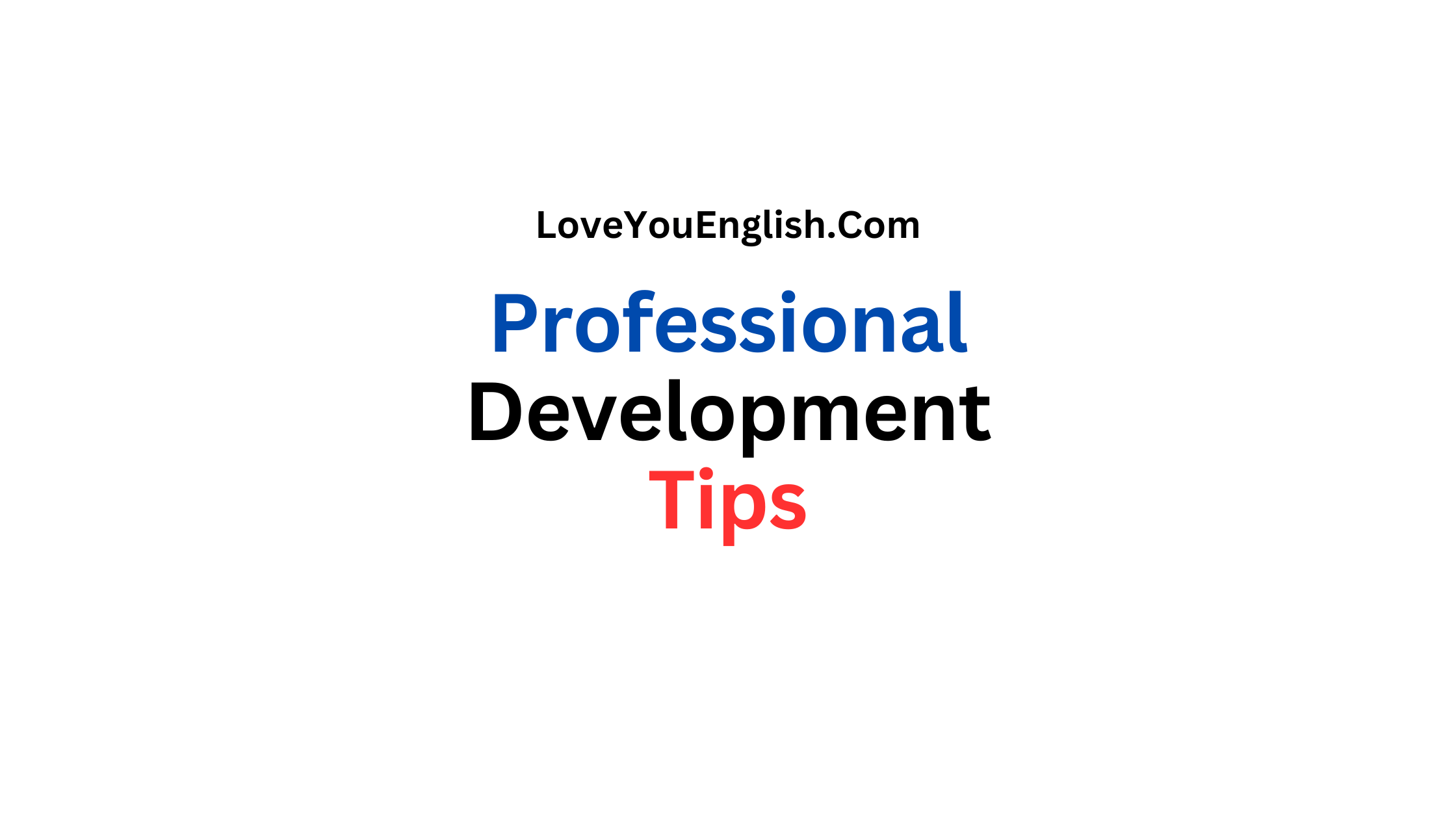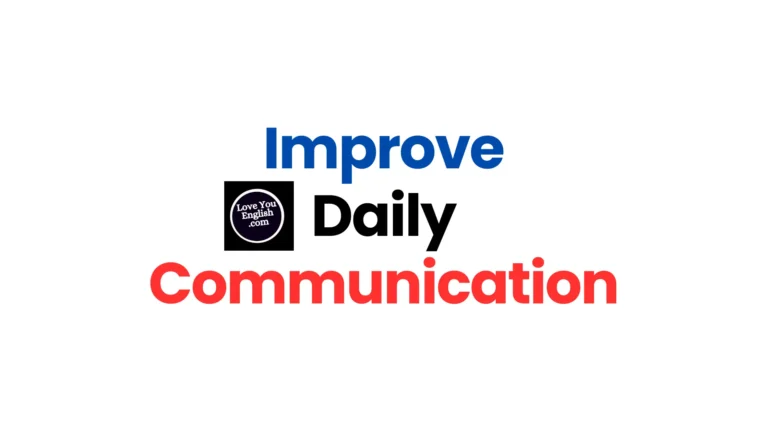Professional Development Tips: A Guide to Growing in Your Career
Professional Development Tips: A Guide to Growing in Your Career
Getting better at your job and learning new things is what professional development is all about.
It’s something you keep doing throughout your life to stay ahead and achieve what you want. No matter if you’re just beginning or aiming for a promotion, there are plenty of ways to work on your professional skills.
I will show you some easy and useful tips to help you grow in your career.
1. Set Clear Goals
Setting clear goals is the first step in professional development. Goals give you direction and help you stay focused.
Here’s how to set them:
Identify What You Want
Think about where you want to be in your career. Do you want a promotion? Or maybe you want to switch to a different field? Identifying what you want helps you set specific and realistic goals.
Make Your Goals SMART
SMART stands for Specific, Measurable, Achievable, Relevant, and Time-bound. For example, instead of saying, “I want to improve my skills,” say, “I want to complete a certification course in digital marketing within the next six months.”
Break Down Your Goals
Big goals can feel overwhelming. Break them into smaller, manageable tasks. For instance, if your goal is to get a promotion, your smaller tasks could include taking a leadership course, networking with key people, and improving your project management skills.
2. Continue Learning
Learning is a key part of professional development. It helps you stay updated with new trends and skills in your field.
Take Courses and Attend Workshops
Many online platforms offer courses in various fields. Websites like Coursera, Udemy, and LinkedIn Learning provide courses on everything from programming to marketing. Attending workshops and webinars can also help you learn new skills and network with others in your industry.
Read Books and Articles
Books and articles are great resources for learning. Look for books related to your field or general career development. Reading articles in industry journals or reputable websites can also keep you informed about the latest trends and practices.
Listen to Podcasts and Watch Videos
Podcasts and videos can be convenient ways to learn on the go. There are many podcasts and YouTube channels dedicated to professional development and industry-specific topics. Find ones that interest you and listen or watch during your commute or free time.
3. Develop Soft Skills
While technical skills are important, soft skills are equally crucial for career growth. Soft skills include communication, teamwork, and problem-solving.
Improve Communication
Good communication is key to success in any job. Practice clear and concise speaking, active listening, and effective writing. Consider taking a course or joining a group like Toastmasters to improve your public speaking skills.
Enhance Your Teamwork Abilities
Being able to work well with others is essential. Practice collaborating on projects, being open to feedback, and supporting your teammates. Participating in team-building activities can also help you develop these skills.
Build Problem-Solving Skills
Problem-solving involves analyzing issues and finding solutions. Work on thinking critically and creatively. Practice solving problems in your current job or take on challenges that push you to develop these skills.
4. Seek Feedback
Feedback helps you understand your strengths and areas for improvement. It’s an important part of professional development.
Ask for Regular Feedback
Don’t wait for your annual review to get feedback. Ask your manager or colleagues for feedback on your performance regularly. This will help you address issues promptly and make necessary improvements.
Be Open to Constructive Criticism
Constructive criticism is meant to help you grow. Listen to feedback without taking it personally. Use it as an opportunity to learn and improve your skills.
Reflect on Feedback
After receiving feedback, take time to reflect on it. Consider how you can apply it to your work. Reflecting on feedback helps you make better decisions and grow in your career.
More professional topics:
- Effective Strategies to Improve Your Communication Skills
- 20 Essential Soft Skills for Students
- How to Concentrate on Studies | 10 Useful Methods
- Interview Etiquette: Top 10 Rules to Follow
- How to Be Confident in an Interview (and Not Arrogant)
5. Network and Build Relationships
Networking is about building professional relationships that can help you advance in your career.
Attend Industry Events
Industry events such as conferences, seminars, and trade shows are great places to meet people in your field. Attend these events to learn from experts and connect with potential mentors or collaborators.
Join Professional Organizations
Many professions have organizations or associations that offer resources and networking opportunities. Joining these organizations can help you stay informed about industry trends and connect with others in your field.
Use Social Media
Social media platforms like LinkedIn are valuable tools for networking. Connect with colleagues, join industry groups, and participate in discussions. Social media can help you build your professional presence and stay updated with industry news.
6. Find a Mentor
A mentor is an experienced professional who can guide you in your career. Finding a mentor can provide you with valuable insights and advice.
Identify Potential Mentors
Look for someone who has experience in your field and whose career path you admire. This could be a senior colleague, a former boss, or someone you’ve met through networking.
Approach a Mentor
Reach out to potential mentors politely and professionally. Explain why you would like their guidance and how you think they could help you. Be respectful of their time and be clear about what you are looking for.
Build a Relationship
Building a relationship with your mentor involves regular communication and showing appreciation for their help. Be open to their advice and keep them updated on your progress.
7. Gain Practical Experience
Practical experience is crucial for applying what you’ve learned and developing new skills.
Take on New Projects
Look for opportunities to work on new projects or tasks at your current job. Taking on new responsibilities can help you develop new skills and demonstrate your capabilities to your employer.
Volunteer
Volunteering for projects or roles outside of your regular job can provide you with valuable experience. This could include volunteering for a charity, leading a community group, or working on a freelance project.
Internships
If you’re starting your career or looking to switch fields, internships can provide hands-on experience. They allow you to learn about a new industry or role and build your resume.
8. Stay Organized
Being organized helps you manage your time and tasks effectively, which is crucial for professional development.
Use a Planner or Digital Tools
A planner or digital tools like calendars and task management apps can help you keep track of your tasks and deadlines. Use these tools to plan your work and stay organized.
Prioritize Tasks
Prioritizing tasks helps you focus on what’s important. Identify your most important tasks and complete them first. This will help you stay on top of your work and avoid feeling overwhelmed.
Set Deadlines
Setting deadlines for your tasks and goals can help you stay motivated and focused. Make sure your deadlines are realistic and achievable.
9. Embrace Change
Change is a constant in the professional world. Embracing change helps you adapt and grow in your career.
Be Open to New Ideas
Be willing to try new methods and ideas. Embracing innovation can help you stay relevant and improve your work.
Adapt to New Technologies
Technology is always evolving. Stay updated with new tools and technologies in your field. Learning to use new technologies can enhance your productivity and keep you competitive.
Be Flexible
Flexibility is important in handling changes in your job or industry. Be willing to adapt to new roles, responsibilities, or work environments.
10. Balance Work and Life
Maintaining a balance between work and life is essential for overall well-being and professional growth.
Set Boundaries
Establish clear boundaries between work and personal time. Avoid bringing work home or checking emails outside of work hours. Setting boundaries helps you maintain a healthy work-life balance.
Take Breaks
Taking regular breaks during work can help you stay refreshed and focused. Schedule short breaks throughout your day to recharge and avoid burnout.
Pursue Hobbies
Engaging in hobbies and activities outside of work can help you relax and recharge. Pursuing interests and passions can also provide a sense of fulfillment and balance in your life.
Conclusion
Growing in your career means always setting goals, learning new things, asking for advice, and making connections.
If you follow these steps and work on improving yourself, you can move up in your job and reach your goals.
Don’t forget, getting better at your job isn’t just about moving up the ranks; it’s about being the greatest you can be and feeling happy with your work.
Begin now, and see your career succeed!







